WordPress 6.6 Launching Date Announced
We are pleased to announce that WordPress 6.6 will soon amaze all WordPress fans and users in a couple of months, in July 2024.
Currently, the expected date is July 16, 2024, but users must remember that it is tentative. The release might take more days to occur smoothly.
WordPress 6.5.5 Security Release
The WordPress 6.5.5 release comprises three crucial security fixes in the Core, which means users must update their sites appropriately.
WordPress 6.5.4 Maintenance and Security Release
This release includes 5 bug fixes in the core. WordPress 6.5.4 is a short-cycle release. Get ready to witness the major release, WordPress 6.6, in July 2024.
WordPress 6.5.3 Maintenance and Security Release
WordPress 6.5.3 is another minor release of WordPress 6.5. This security and maintenance release consists of 1 security fix, 12 bug fixes in core, and 9 bug fixes for the block editor.
WordPress 6.5.2 Maintenance and Security Release
WordPress 6.5.2 is the first minor release instead of WordPress 6.5.1 for WordPress 6.5. The latter was not released since the initial package had an issue. This security and maintenance release contains 1 security fix, 12 bug fixes for the Block Editor, and 2 bug fixes on Core.
WordPress 6.5 Offers Native ‘Lastmod’ Support to Improve SEO
WordPress 6.5 now provides native support for the lastmod element in sitemaps. As you know, sitemaps allow search engines to find and understand website pages.
Moreover, the lastmod element informs search engines if the website pages are significantly updated, enabling search engines to explore crucial pages on a priority basis. This feature is handy when websites want to enhance their SEO tactics without relying on manual configuration.
Google and Bing have highlighted the importance of the lastmod support feature. They have recommended users upgrade their existing versions to WordPress 6.5. By doing so, they can benefit from the lastmod support feature and improve their SEO efforts appropriately.
WordPress 6.5 – Updated News
Finally, the wait is over. WordPress 6.5 “Regina” has been released officially on April 02, 2024.
Inspired by popular Jazz artist Regina Carter, the latest version, WordPress 6.5, improves the website-building experience to new heights.
The latest developer tools, such as the Interactivity API and the Block Bindings API, will hugely affect WP 6.5 followers in crafting results-driven experiences.
WordPress 6.5’s release has been delayed by one week. It will be released on Tuesday, April 02, 2024.
The delay is in incorporating the directory for font storage that will be changed to wp-content/upload/fonts.
Furthermore, WP 6.5 followers should note that the editor team will work on including fixes for a few bugs that have been detected with the Font Library feature in the upcoming Gutenberg 18.0.0 release.
We are already into the second month of 2024, and WordPress has started ramping up its features and capabilities to gear up for the first major release of the year, WordPress 6.5.
All these features and capabilities will help you make the most of WordPress in 2024 and make your website more accessible and impactful.
WordPress has planned to launch the final release of WordPress 6.5 on March 26, 2024.
This blog post will regularly describe all the latest features and updates related to WordPress 6.5 Beta versions and Release Candidates (RCs).
What’s Coming in WordPress 6.5
Like WordPress 6.4, WordPress 6.5 includes various stunning features that can transform your WordPress websites effortlessly.
You can benefit from impressive functionalities like blocks, fonts, styles, synced patterns, site editor, classic themes, and performance updates.
WordPress 6.5: Features You Should Not Overlook
The new WordPress release, WordPress 6.5, focuses primarily on improving user experience. Therefore, users will explore various stunning features and enhancements, allowing them to experience a seamless WordPress journey.
Here are various features offered by WordPress 6.5 to users, including:
- The Font Library
- Enhanced Synced Patterns
- Blocks and Custom Fields
- The Interactivity API
- Style Revisions
- Classic Themes
- Design Tools
- Site Editor Updates
- Data Views in the Site Editor
- Improved Plugin Experience
- Performance-Related Updates
- Enhanced Accessibility
— The Font Library
The font library enables you to manage a crucial aspect of your website: typography. You can easily customize fonts throughout your website, depending on your needs.
You can install Google Fonts or local fonts and incorporate your desired typography collections.
— Enhanced Synced Patterns
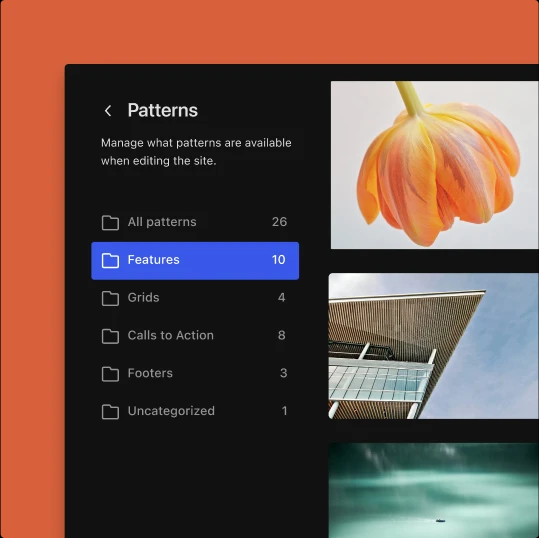
Synced patterns improve your website design process. They help you make crucial changes to specific layouts hassle-free.
Synched patterns allow you to override the content, keeping the design and layout of your website consistent. You can select what content needs to be updated within the synced pattern.
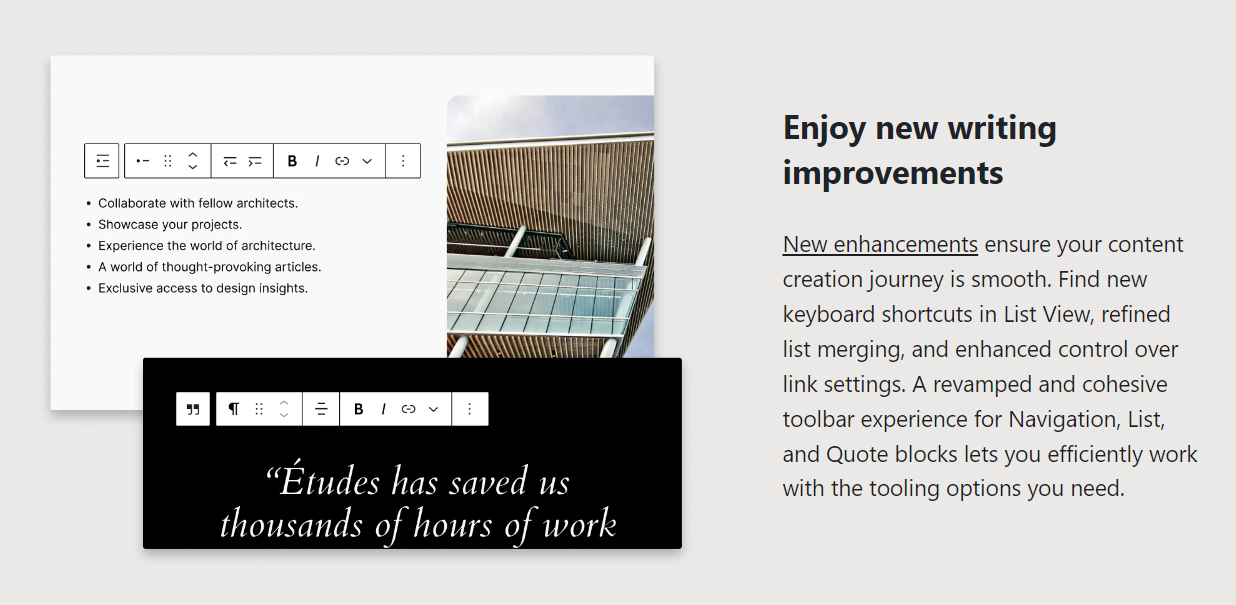
Interestingly, you can change content regarding headings, button blocks, images, and paragraphs.
Synced patterns are handy for testimonials, case studies, recipes, etc., where the design remains the same, but the content keeps changing.
— Blocks and Custom Fields
WordPress 6.5 will help users connect custom fields to core block attributes. This means that users can now use the value of a custom field. They do not need to create custom blocks.
The block bindings API allows developers to connect custom fields to blocks. Besides, they can connect these core blocks to any dynamic content when needed.
— The Interactivity API

The Interactivity API is the upgraded version of the lightbox for images feature. Through the Interactivity API, developers can create interactive experiences within blocks.
Developers can include other exciting features, such as showing new comments or fetching search results.
As a result, visitors can engage with content in real time and improve their experiences.
— Style Revisions
Style revisions let developers monitor their work appropriately. When working on a new concept or design, they offer a clear picture to developers regarding their work with updates, such as timestamps, quick summaries, and a list of revisions made.
Developers can view revisions using the Style Book to monitor changes not shown in the template they are working on.
— Classic Themes
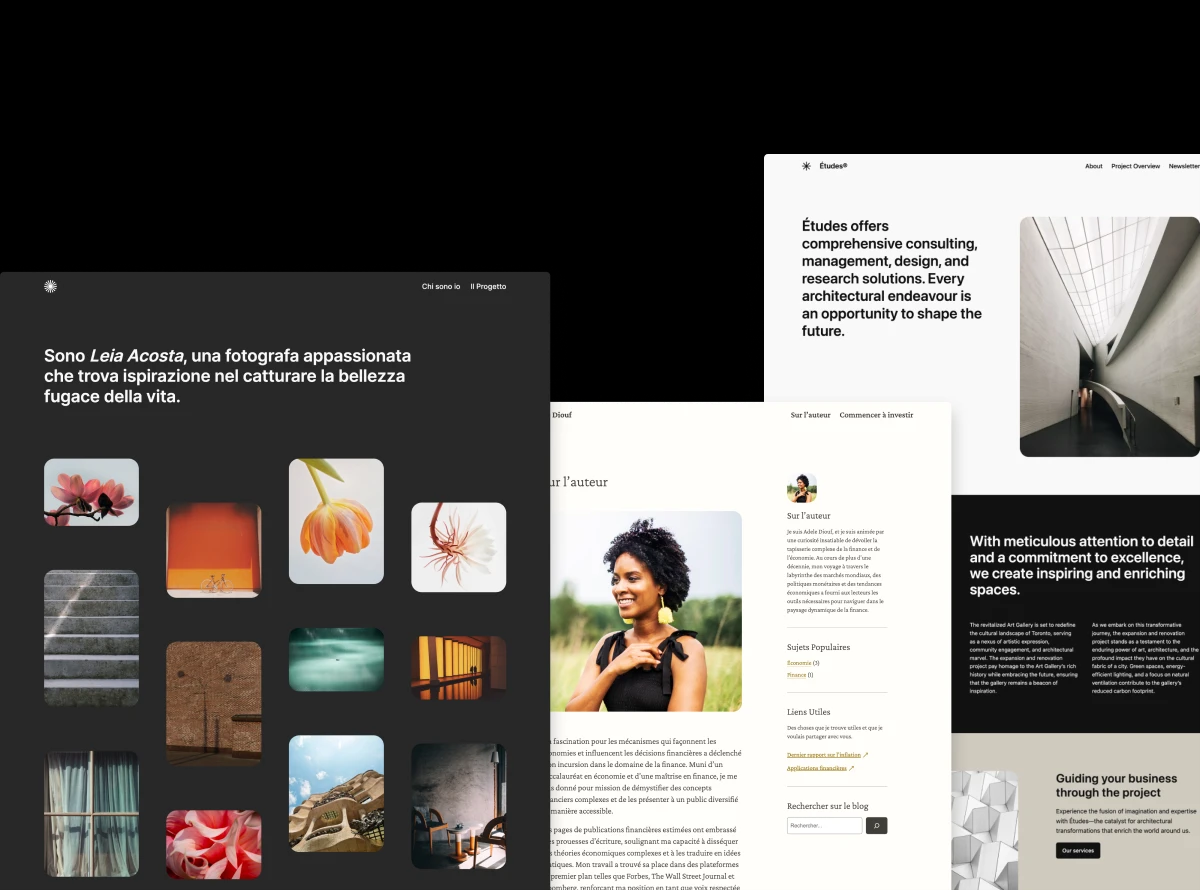
WordPress 6.5 helps developers add new design options to Classic themes without relying on theme.json.
This way, website designers and creators can access multiple design options via Class themes, such as spacing, border controls, typography, and color options.
— Design Tools
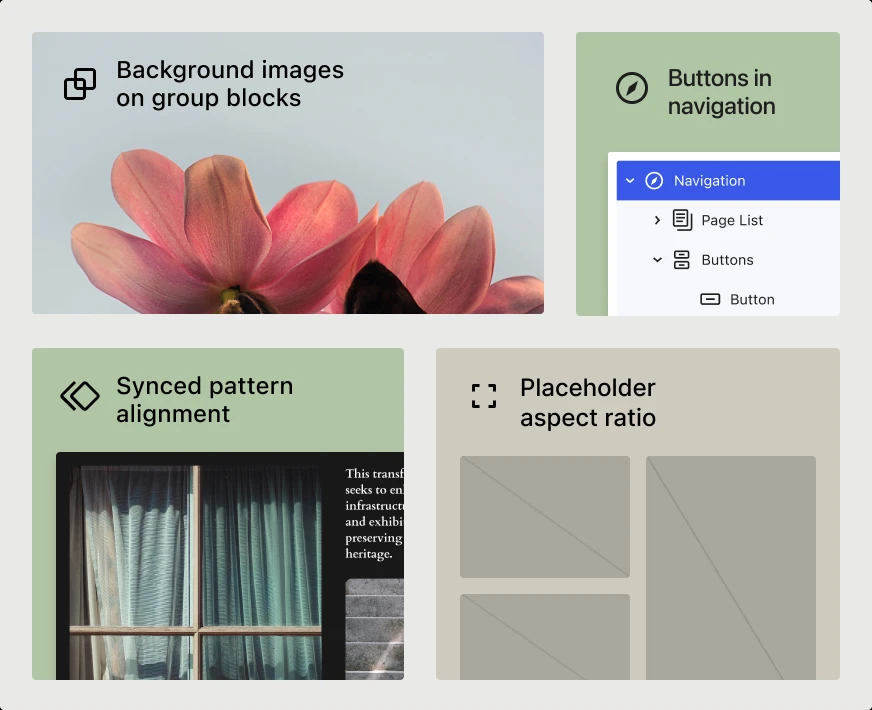
Fortunately, WordPress 6.5 offers several enhancements to help enhance the design experience, including:
- Background images for Group blocks get size and repeat support so users can incorporate visual elements into their layouts.
- Users can benefit from Aspect ratio support for the Cover block. Hence, they can manage the shape and size of cover block images.
- Shadow support allows developers to add more blocks when creating layouts with visual depth.
— Site Editor Updates
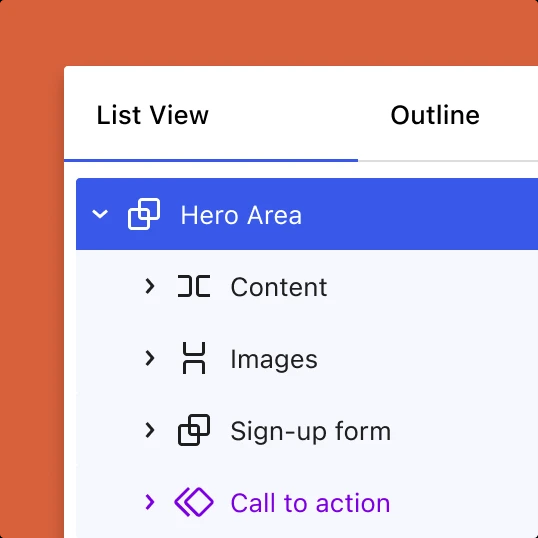
Site Editor updates allow developers to streamline their workflows. You can simplify your web development by relying on various Site Editor capabilities.
You can rename every block in the list view without any fuss. You can also organize individual patterns by duplicating or renaming them.
Site Editor updates also include impressive UI improvements. For instance, users can quickly right-click from the List view to add access to their block settings.
Similarly, you can utilize consolidated settings in the Editor preferences panel to adjust preferences. When you are in the Distraction Free mode, you can use the block toolbar on hover.
You can also create and manage links in different blocks to enhance the link-building experience.
— Data Views in the Site Editor
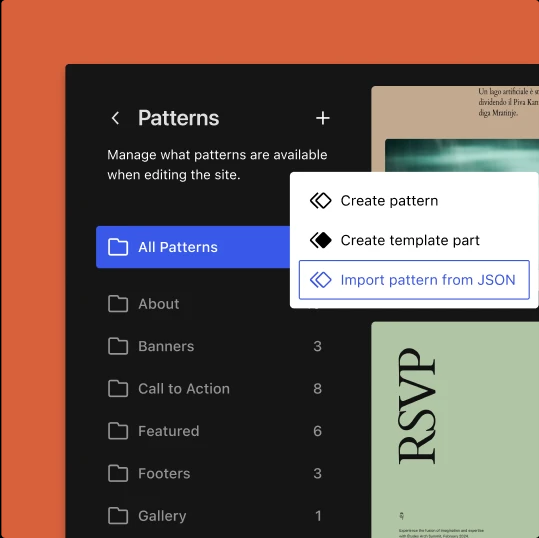
WordPress 6.5 consists of data views for patterns, templates, pages, and template parts that help you streamline the website editing experience.
Moreover, you can view data in a grid or table view. When making bulk changes, you can use a new UI to toggle fields.
— Improved Plugin Experience

You can smartly manage plugins needing other plugins. Plugin authors can list required plugins in their plugin’s settings.
When installing such plugins, they will use the links to install and activate the required plugins first. Therefore, the required plugins should remain active and installed as long as the plugins that need them are active and installed.
If the required plugin gets deactivated, plugins that require it will be deactivated.
— Performance-Related Updates
In WordPress 6.5, 110+ performance-related updates are available. For instance, Post Editor and Site Editor load faster than Post Editor and Site Editor in WordPress 6.4.
Users can experience faster input processing speed when using the latest version of WordPress. Furthermore, they can easily navigate through the Site Editor six times faster than in WordPress 6.4.
— Enhanced Accessibility
Users can use more than 60 updates to enjoy accessibility like never before. With these notable accessibility updates, you can fix multiple issues like cursor focus, element positioning, contrast settings, etc.
Other Crucial Changes and Enhancements
WordPress 6.5 comprises other impactful changes and enhancements that can become a game changer for users. These changes and enhancements are:
— AVIF Support
WP 6.5 enthusiasts will find another impressive feature: AVIF support. The latest version of WordPress specifically supports the AVIF image format.
AVIF support mainly relies on an advanced compression algorithm that helps deliver high-quality images at a higher compression ratio. Thus, users can enjoy improved image quality even with smaller file sizes.
Users can instantly use the WordPress media library and upload AVIF files. However, users’ hosting platforms must support the AVIF file format.
To check if your host supports the AVIF file format, click the info tab and expand the Media Handling section in your WordPress’s Site Health screen.
— Updates to the HTML API
In WordPress 6.5, the role of HTML API is quite significant as it quickly scans syntax tokens. It can scan tag and non-tag tokens, text nodes, doctype definitions, and comments.
Hence, users can change the text within token boundaries, called modifiable text, without changing the overall document structure.
In simple words, modifiable text is changeable content that keeps the document structure the same. Modifiable text is denoted by script or style elements.
You can assume the entire content of a text node as a modifiable text. Furthermore, the content between the opening and closing tags of special elements and the content of an HTML comment is known as modifiable text.
Besides, several new methods have been introduced, such as:
- next_token() – moves to the next token in the document.
- get_token_type() – gets the type of token found.
- get_token_name() – gets the name of a token.
- get_modifiable_text() – returns the correctly decoded text content for a given token.
- get_comment_type() – gets the type of comment.
- paused_at_incomplete_token() – returns true if the Tag Processor reaches the end of a document truncated in the middle of a token.
— Updates to Block Hooks
Block Hooks were introduced in the previous version of WordPress: WordPress 6.4. They help users place a block in a particular position when another block is incorporated into the content.
WordPress followers can now use Block Hooks with modified layouts. Previously, they were available for patterns, templates, and template parts and not modified by users.
Additionally, in WordPress 6.4, users were allowed to add Block Hooks before and after the navigation block. You can add Block Hooks as the first or last child to a navigation block.
This Block Hooks enhancement also includes the new hooked_block and hooked_block_{$hooked_block_type} filters.
How Can We Test WordPress 6.5 Beta 1?
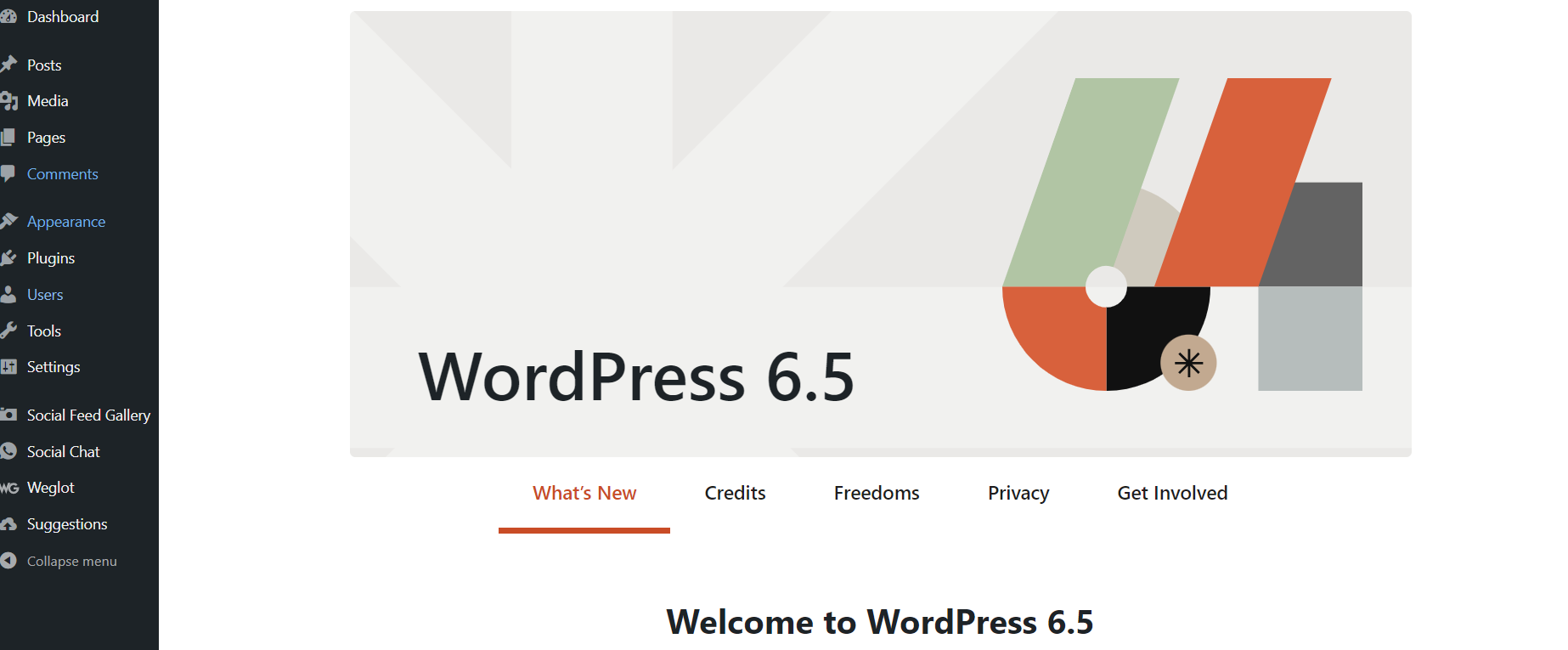
To install and test the WordPress 6.5 Beta 1 version, here is what you should do:
- Start by installing the “WordPress Beta Tester” plugin.
- In the Tools panel, click “Beta Testing.”
- Choose the “Bleeding Edge” channel.
- Select the “Beta/RC Only” stream from the available options.
- Once you configure the settings, update your test site to the WordPress 6.5 Beta 1 version.
WordPress 6.5 Beta 2
WordPress 6.5 Beta 2, released on February 20, 2024, has 50+ updates, including 40+ core tickets. In addition, WordPress users can earn monetary rewards for identifying new and unreleased security susceptibilities.
The vulnerability bounty has doubled between Beta 1 and the final Release Candidate (RC), which is scheduled for March 19, 2024.
WordPress 6.5 Beta 3
WordPress 6.5 Beta 3 has 45+ updates. These updates contain 35+ WordPress Core tickets.
Users must remember that the vulnerability bounty amount has doubled between Beta 1 and the final Release Candidate (RC), scheduled for March 19, 2024.
WordPress 6.5 Release Candidate (RC) 1
WordPress 6.5 Release Candidate (RC) 1 consists of 20+ bug fixes and 40+ WordPress Core tickets.
WordPress 6.5 Release Candidate (RC) 2
WordPress 6.5 Release Candidate (RC) 2 consists of 20+ bug fixes and 30+ WordPress Core tickets.
WordPress 6.5 Release Candidate (RC) 3
WordPress 6.5 Release Candidate (RC) 3 consists of 10+ bug fixes and 15 WordPress Core tickets.
WordPress 6.5 Release Candidate (RC) 4
WordPress 6.5 Release Candidate (RC) 4 consists of 6 bug fixes and 10 WordPress Core tickets.
Wrapping Up
We hope you liked our post, which lets you discover the latest WordPress 6.5 and its various features and capabilities.
The upcoming version of WordPress has enticing features and updates that help significantly improve user experience. Due to that particular reason, 2024 is the year WordPress users will love to remember.






















































